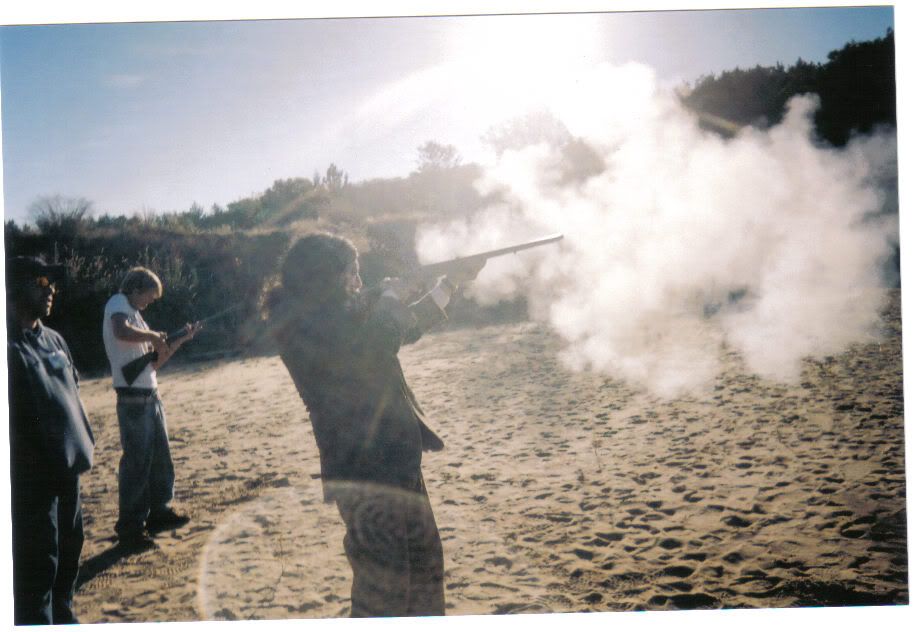| mehulkamdar |
| (.416 member) |
| 17/03/06 04:55 AM |

|
|
|
Times of India Article courtsey Johan Pachpau from the Indians4Guns forum:
SUNDAY
TIMES OF INDIA, New Delhi/Chandigarh March 12, 2006
New hunting policy smeared with blood?
Govt Allows Culling Of Neelgai, Wild Boar
By Ramaninder K Bhatia TIMES NEWS NETWORK
Chandigarh: The state government decision to allow
hunting of neelgai (blue bull) and wild boars in
select areas to prevent crop damage has enraged animal
lovers. Accusing the state government of succumbing to
the hunting lobby, they say that the decision would
literally sound the death knell for these species on
the verge of extinction.
The state government had issued a notification on
March 6 authorising SDMs to issue permits for hunting
wild boars and neeigai as these animals damage crops
in certain places, including Kandi area and Malwa.
Chief conservator of forests and wildlife, AS Dogra;
told TOI that ample safeguards had been incorporated
in the notification to prevent its misuse. To start
with, hunting would be permitted only when the
panchayatof an affected area passes a resolution by
way of making a request to hunt down animals damaging
crops, he said. No permit would be issued to hunt
animals in reserve forests, sanctuaries, conservation
rreserves,communlty reserves and wetlands or within
five kms of the boundary of these areas, he said.
The size of rifle (9 mm calibre) has also been
specified for culling so as no ani
mal is left injured and in pain. SDMs have also been
asked to satisfy themselves about the veracity of
claims of crop damage before issuing permits.
As per the Wildlife Act, the body of the killed animal
is supposed to be deposited with the forest department
which, in turn, is supposed to burn it. However, the
notification only specifies that the details of the
hunted animal are to be
[
CROP
J
DAMAGE
given to the range officer or wildlife inspector
within 24 hours of culling.
Those criticising the move say that the wildlife
department is grossly understaffed and would not be
able to monitor the process. "When you have two
wildlife guards or forest guards, that too encumbered
by lack of vehicles and arms, in each district, how do
you expect them to monitor the forests day and night?
To top that, they have to appear in umpteen court
cases almost every other day, " said Sukhdeep Bajwa, a
former honorary wildlife warden, who helped detect
many cases of poaching in Gurdaspur.
The Gurdaspur district has just two guards and an
out-of-order motorcycle "for chasing poachers and tim
ber smugglers".
"Permits are to be given only to those who own a
specific rifle. How many small and marginal farmers
actually own these? This is only for the benefit of
trigger happy big landlords," he said.
Dr Sandeep K Jain, a former executive member of the
Animal Welfare Board of India and coordinator of
People For Animals, Punjab, alleged that the
population of blue bulls in the state could not be
termed high. "There are about 3,000-4000 blue bulls in
the state. The government survey says there are 8,000!
It's false and misleading," said Jain.
"Blue bulls are shy, noc- ;1 turnal creatures forced
to I
come out in search of food as their natural habitats
have dwindled due to .human aggression and
encroachment.
The government should rather start and subsidise crop
insurance policy for farmers and ask them to fence
their fields. Afforestation would also make animals
stick to their natural habitat," he said.
Interestingly, authorities had no crop loss figures to
offer. Dogra conceded that the department did not have
adequate number of guards but said that the department
had the power to revoke this permission in case
violations were reported.